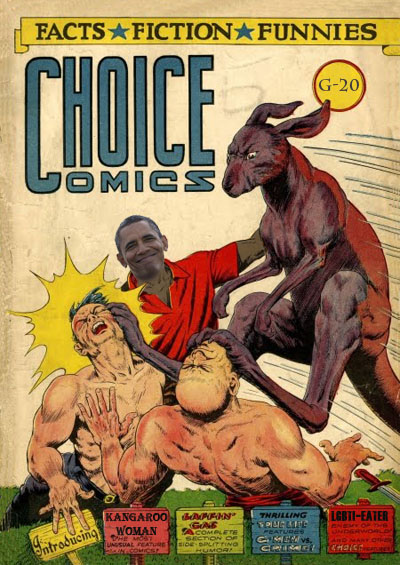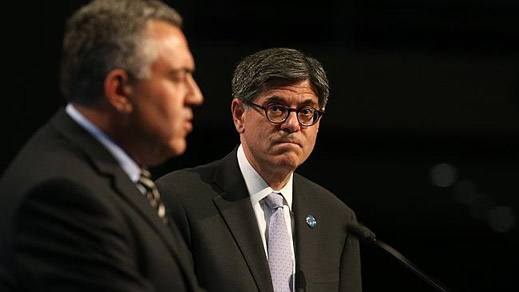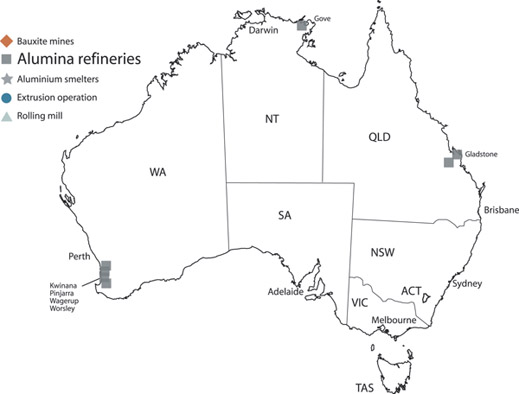
By John Helmer, Moscow
The Australian Government is threatening the personal security of President Vladimir Putin at the G-20 summit, to be held in November. The state government of Queensland, where the summit meetings will be located, is threatening to attack Putin with public displays of homosexual symbols, including pink sequins.
The calculation is that Russia’s international isolation should be intensified, Putin evicted from the G-20, as he was in March from the G-8; reviled in his absence as justification for violent schemes to overthrow him. If Putin attends the Queensland meeting, the risk of the latter will be high. Fear for himself is what the Australians intend him to have.
The Australian scheming began in March, a fraction of a step ahead of Europe and of the US. The outcome was the first Russian counter-sanction, issued on March 31. This banned Australian meat sales to Russia, worth about A$200 million (US$186 million) per annum. The March story can be read here. At the time, Australian Foreign Minister Julie Bishop threatened to issue a travel ban against Putin, excluding him from the G-20 summit conference. On state radio Bishop claimed: “We are still deciding on further steps that we will take in relation to the G-20.” She also claimed that “Russia has not indicated that there is any connection between this ban and Australia’s sanctions. Australia recognises Russia’s right to determine its import requirements in a manner consistent with its WTO obligations. We are working with Russian authorities closely on this matter.”
Ten days later, on April 10, the Australian finance minister, Joe Hockey, said: “Of course Russia will be at the table [of the G-20 summit]… it is an economic forum and whilst we obviously will discuss some of the geo-political challenges in the Ukraine, we are not going to allow it to dominate our agenda, which is focused on how we can grow the global economy.” The day before, his subordinate at the Treasury, Paul Sterland, had dismissed speculation on further Australian sanctions against Russia by the G-20, whose rotating chairmanship Australia holds for this year. Sterland said there would be a discussion of the “full range” of geopolitical risks at the G-20 meeting, but there was no plan for joint action against Russia. “That sort of theme would not be on the agenda for this meeting,” Sterland added.
 In fact, over the objections of the Australian farm lobby and farm state politicians, the government in Canberra had decided to sacrifice the trade in the cause of the Anglo-American war against Russia, by economic means. Russia was a target, claimed Australian Prime Minister Tony Abbott (right), because it was “becoming an international pariah.”
In fact, over the objections of the Australian farm lobby and farm state politicians, the government in Canberra had decided to sacrifice the trade in the cause of the Anglo-American war against Russia, by economic means. Russia was a target, claimed Australian Prime Minister Tony Abbott (right), because it was “becoming an international pariah.”
Australian voter disapproval of Abbott’s performance as prime minister has been growing steadily, before he said that, and since. It was 43% in January; it has risen to 52% in a poll taken early in September. The same pollster reports that Abbott’s government is retaining majority voter approval for his conduct of “relations with other countries”. But the poll shows there is majority disapproval of Abbott’s performance on every other issue surveyed. The opposition Labor Party is currently 6 percentage points ahead of Abbott’s Liberal National Party in an election match-up; it has reversed the party scores of the election held a year ago.
US and European meat exporters to Russia took advantage of the Australian loss of trade for four months. Then on August 7, Russia extended its counter-sanctions to the food trade from North America and Europe. For details, click here.
Over this weekend in Queensland, at the final preparatory meeting of G20 finance ministers before the November summit, Minister Hockey (below left) announced that action against Russia and Putin was definitely on the summit agenda. “We’ve consulted with a number of the countries and the emphatic view came back that of course we should allow Russia to attend the G20. It is also important, as a number of other countries said to us, that the door always remains open for communication in order to address some of the geopolitical tensions involving Russia.”

The US Treasury Secretary, Jack Lew (above, right), followed by issuing a threat, headlined in the local press: “Putin to face icy reception at G20, says US Treasury Secretary.” In the event he attends the summit, Lew said, “President Putin will hear very directly what he is hearing through economic sanctions…which is that Russia’s actions are unacceptable.”
Foreign Minister Bishop followed on local radio, conceding that Australia lacks the authority to exclude Putin from the G-20 meeting, but endorsing the US scheme of toppling him with sanctions. “Australia is the host but we don’t have the right to rescind invitations that have been sent. That would have to be a consensus view within the G20 and there isn’t that consensus…I’ve taken soundings and countries are determined to ensure that the G20 remains the premier economic forum for global issues and there is a view that president Putin should turn up and face the international condemnation for its behaviour in relation to Ukraine.”
 On Sunday, September 21, Bishop (right) resumed the attack on Putin for the destruction of Malaysian Airlines MH17. She told Australian state radio: “Russia displayed a lot of bad faith…because it sought to discredit the Dutch-led investigation into the causes of MH17. Australia’s view is that MH17 was shot down by a surface-to-air missile, probably by the Russian backed separatists in the eastern Ukraine and nothing I’ve seen or heard since we formed that view two months ago has changed.”
On Sunday, September 21, Bishop (right) resumed the attack on Putin for the destruction of Malaysian Airlines MH17. She told Australian state radio: “Russia displayed a lot of bad faith…because it sought to discredit the Dutch-led investigation into the causes of MH17. Australia’s view is that MH17 was shot down by a surface-to-air missile, probably by the Russian backed separatists in the eastern Ukraine and nothing I’ve seen or heard since we formed that view two months ago has changed.”
In light of these statements, Bishop was asked if it is “ the Australian Government’s view that a change of Russian leadership would be in best interests of global and domestic peace and security? What confidence do you believe the Russian government should have in the security measures the Australian Government will take to protect the security of the Russian head of state?”
Bishop’s spokesman asked for her name not to be released. She then reported that the minister would not answer. Australian polling of individual ministers in August shows that the publicity Bishop has attracted for her anti-Russian statements has generated higher voter recognition than she has drawn since her appointment; and currently a higher popularity score than other government ministers.
Australia’s two main exports to Russia are meat, which is widely distributed in Russia after processing into sausages, as well as through restaurants; and alumina, whose sole consumer is the aluminium smelters of United Company Rusal. Rusal owns a 20% stake in Queensland Alumina Limited (QAL), which produces and ships the product from Gladstone, on the northeast coast.

Because just a handful of countries take Australian shipments of alumina, the tonnage and value are treated as a “confidential item” in the regular statistics of Australian exports by destination.
What is clear is that Australian shipments of meat to Russia have been running at about A$200 million annually, while alumina shipments have been more than double that value. Altogether, according to the government reports, in the year ending June 30, 2014, Australian exports to Russia totalled A$714.6 million. Imports from Russia, principally of crude oil and fertilizers, came to more than A$1 billion.
Of Australia’s six states, Queensland dominates Australia’s Russia trade with a 47% share. The Queensland state statistics for the year ended June 30, 2014, show that exports to Russia of meat and alumina, combined, came to A$338.2 million. But that comprised just 0.8% of the state’s export total. Russia ranked 20th as an export destination.
Gladstone is Queensland’s second largest port, and accounts for about 21% of the state’s shipments. Coal is Gladstone’s biggest export; alumina second. Breaking open the classified alumina shipment data, and counting that China, Japan, South Korea and the US are on the receiving end too, Gladstone shipments to Russia comprise about 14% of the annual total.
The numbers are moderately large, but proportionally Russia is a target Australia can afford to attack. Queensland, too, particularly if the domestic polls show the stance may reverse dwindling voter support.
 The Queensland premier, Campbell Newman (right), an Army major before he went into politics, won the state election in March 2012. He defeated Anna Bligh. Her efforts to cultivate Rusal and its controlling shareholder, Oleg Deripaska, and attract substantial new Russian investment into bauxite mining in Queensland, were chronicled in 2010.
The Queensland premier, Campbell Newman (right), an Army major before he went into politics, won the state election in March 2012. He defeated Anna Bligh. Her efforts to cultivate Rusal and its controlling shareholder, Oleg Deripaska, and attract substantial new Russian investment into bauxite mining in Queensland, were chronicled in 2010.
In July, Newman made a public attack on Putin, implying he was to blame for the downing of MH17. “If Mr Putin’s not prepared to [fully co-operate with independent, international investigations], then frankly I believe that Queenslanders don’t want him here at the G20.” The timing of Newman’s attack was a hotly contested by-election at the Stafford constituency, in the northern suburbs of Brisbane, where Newman’s Liberal National Party was facing defeat for its candidate. Newman’s tough talk made no impression on the voters: with a poll swing of 17%, they elected the Australian Labor Party alternative.
Newman has been reluctant to resume his attacks on Putin. His spokesman Mitch Grayson was asked to say if it is the premier’s “view that fresh sanctions would be appropriate if they penalize Putin and his closest friends and supporters? Why has Queensland not recommended a sanctions ban on selling Queensland alumina to Rusal, the Russian state aluminium monopoly? What confidence do you believe the Russian government should have in the security measures the Queensland and Australian Governments will take to protect the security of the Russian head of state?”
Grayson refused to answer. A voter poll reported in Brisbane a few days ago shows that support for the premier has dropped sharply; and that Newman “faces electoral oblivion in his own seat”.
Newman has also threatened to attack Putin with pink sequins and other homosexual symbols. According to the Star Observer, which bills itself as “Australia’s most respected LGBTI [Lesbian Gay Bisexual Transexual Intersexed] news source, “a symbol of tolerance and diversity will feature heavily during the upcoming G20 Summit in Brisbane later this year, with one particular, pink-sequinned message unofficially being directed at Russian President Vladimir Putin. Queensland Premier Campbell Newman announced plans this week to unveil a Hollywood-style “Brisbane” sign… to stand in the city’s Southbank promenade during November’s summit, with the Brisbane Pride Festival (BPF) granted input into designing the first letter [B]…Plans to adorn the “B” with bright pink sequins will give Queensland a chance to make a statement, according to Newman. ‘We’ve got to make a statement about who we are, what we stand for, what we believe,’ he told the media….While not officially designed to be an affront to the Russian leader — whose government has enforced so-called ‘gay propaganda’ laws across Russia — the prominent placement of a symbol for the LGBTI community is a message that Black wouldn’t mind Putin being faced with. ‘While that has never been the stated objective of the Brisbane sign or our involvement in it, the thought that it in some small way may send a message to Vladimir Putin is certainly one we welcome,’ Black said.”
NOTE: Following the publication of this story, Russian sources, including those close to Rusal, say that if the Australian government initiated a ban on exports of alumina to Russia, the impact would be negligible for Rusal, and much more damaging for Australia. The company has already been reducing its purchases of Australian alumina in the past two years. If the Australian supply is cut off, Rusal sources say that ample supplies at comparable prices would be available elsewhere. In fact, suggests one Moscow source, the Kremlin might strike back at the Australian Government, and impose a counter-sanction, adding alumina to Australian meat on the ban list. The current Russian Customs figures for imports of alumina from Australia reveal that since 2012 there has been a 46% reduction in volume, from 1.3 million tonnes to the equivalent this year of 700,000 tonnes. In the same period, the value of Australian alumina imported to Russia has fallen from almost US$400 million to about US$250 million.











Leave a Reply